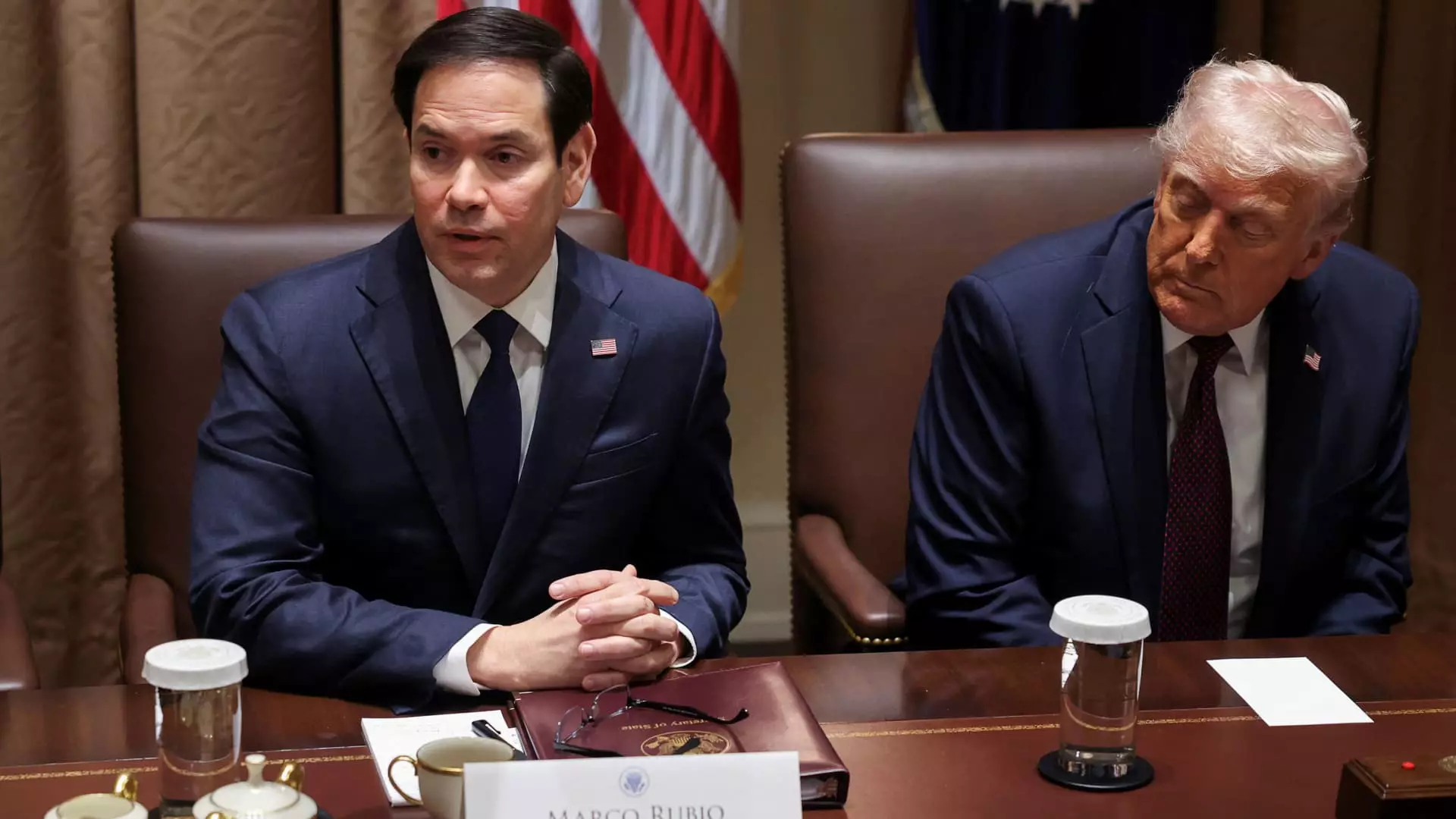The proposed changes to the U.S. State Department under the Trump administration are not merely administrative adjustments; they signify a cataclysmic shift in how America engages with the world. The draft executive order, rumored to be awaiting President Trump’s endorsement, lays bare intentions to dismantle significant parts of the diplomatic apparatus that has, for decades, projected American values and influence globally. By prioritizing an “America First” approach, this reorganization threatens not only to undermine international alliances but also to erode the fundamental principles of democracy and human rights that have been cornerstones of U.S. foreign policy.
The suggestion to close American embassies across Southern Africa and eliminate key bureaucratic functions dedicated to crucial issues—including climate change and human rights—sends a chilling message. It communicates an abandonment of regions that desperately require American cooperation and support, further isolating them in a geopolitical landscape already fraught with tension. This isn’t merely administrative efficiency; it’s a conscious decision to withdraw from moral responsibilities on the world stage.
The Implications of Bureau Consolidation
The consolidation of regional bureaus into four “regional corps” is particularly troubling. Such a sweeping rearrangement of our diplomatic infrastructure suggests an over-simplification of international relations. By clustering diverse nations with varying needs and contexts into broad categories, the nuances and specificities that require tailored responses are likely to be lost.
This is not about efficiency; it’s about a nascent authoritarian mindset that views the world in black and white, neglecting the complexities inherent in diplomatic relations. Each region encapsulates unique challenges, and to group nations such as Iran and Pakistan with Arab nations disregards the historical, cultural, and political intricacies at play. This lack of discernment may not only stymie effective policy but could also provoke diplomatic crises that could have been avoided with a more nuanced approach.
A Dire Threat to Human Rights and Democratic Values
Moreover, the elimination of offices focused on key issues such as human rights and women’s issues represents a grave threat to global progress on these fronts. The United States has historically positioned itself as a defender of human rights, advocating for democracy and social justice worldwide. The intent to sever these initiatives, removing a critical voice from those fighting for dignity and justice, reflects a disturbing turn away from the values that inspired past generations to view America as a beacon of hope.
Could it be that America is unwilling to confront its uncomfortable realities—such as its own systemic injustices—by choosing instead to disengage from global conversations about equality and justice? When a nation retreats from advocating for the marginalized within the international community, it sends a powerful signal: our global partnerships are conditional, our commitments superficial, and our humanitarian values negotiable.
A Dangerous Reconfiguration of Diplomatic Personnel
Perhaps most concerning is the overhaul of the recruitment and training of U.S. diplomats. The proposed elimination of the traditional Foreign Service Officer Test, replaced by an assessment aligned with the president’s foreign policy vision, signals a paradigm shift that prioritizes loyalty over capability. By aligning the recruitment process with political loyalties rather than professional qualifications, the integrity of diplomatic engagements is effectively compromised.
This shift transforms the State Department from an apolitical entity pursuing the interests of the nation into a politicized apparatus designed to serve the whims of the administration. Such a transformation poses a risk not only to future diplomatic missions but jeopardizes the ideals upon which the department was founded.
In a world increasingly defined by competing national interests and ideological divides, the U.S. must exercise diplomacy grounded in empathy, inclusivity, and respect for human rights. The proposed executive order threatens to dismantle the very fabrics that hold international partnerships together—trust and accountability. As the U.S. edges closer to becoming an isolationist state, the ramifications will be felt not just at home, but around the globe, potentially ushering in an era of turmoil rather than stability.


Leave a Reply